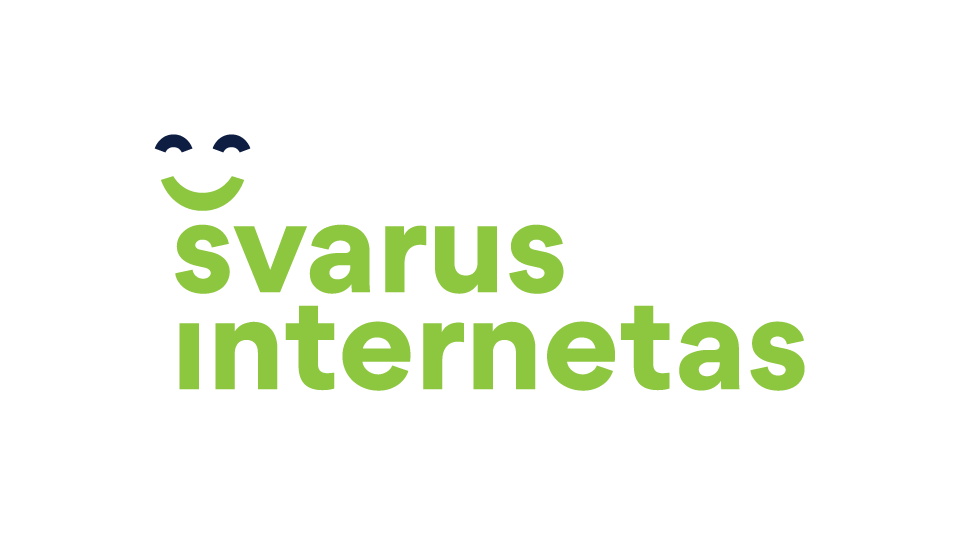
Throughout 2020, the Communications Regulatory Authority of the Republic of Lithuania (RRT) received 1373 reports of prohibited[1] or harmful internet content via the internet hotline ”Clean Internet”. Internet users sent reports about dissemination of prohibited information found on the Internet, i.e., information that contains pornographic content, promotes sexual abuse, exploitation of children, presents self-inflicted violence, promotes mocking of children or adults and despises them on the grounds of nationality, race, gender, disability, sexual orientation, beliefs, etc., as well as unauthorized publication of personal information. Compared to 2019 (998 reports received), the number of reports increased by almost 38%. After RRT experts examined each received report, further actions were taken in 460 cases (33.5% of all received reports):
- 159 reports of child sexual abuse images were forwarded to Internet hotlines in other countries, members of the international Internet hotline association INHOPE. 403 messages received were repetitive, i.e., on the same content that had already been reported to INHOPE or the Police Department, so no further action was taken on them.
- 143 reports were forwarded to internet service providers, website owners, social media management companies in various countries with a Notice and Take Down (NTD) flag on illegal internet content on their websites or social networks for soonest possible removal.
- 80 reports were forwarded to the Police Department for further investigation regarding suspected illegal content on Lithuanian servers.
- 78 reports were forwarded to the Office of the Inspector of Journalistic Ethics for further investigation regarding information suspected of having negative effects on minors.
“Last year, due to the global pandemic and quarantine, both adults and children spent much more time in cyberspace than before. Well-developed e-communications networks and digital tools have enabled us to act, work and learn remotely, but at the same time, in addition to the positive things, as usual, negative aspects have emerged, such as the increased volume of child sexual abuse material in the digital space. These global trends, as noted in the reports of institutions such as Interpol, are confirmed by the figures of our Internet hotline as out of 640 reports of child sexual abuse material on the Internet received in 2020, as many as 78 cases were detected at Lithuanian servers and forwarded to the Police Department, which is almost 80 percent more than in 2019,” Ieva Žilionienė, Deputy Director of RRT, states. “This is why public vigilance, parents’ and educators’ attention to children’s online behaviour, assistance in dealing with unpleasant or even intimidating experiences, and the involvement of service providers and prompt response to potentially prohibited content are crucial, because only the joint efforts of all members of the ecosystem can stop the spread of such content online.”
2020 m. RRT received 133 reports of bullying in cyberspace. In 53 cases the information was confirmed and appropriate action was taken. RRT hereby reminds that according to the Law on Education of the Republic of Lithuania, upon learning of a case of public bullying in cyberspace, the parents (guardians, caregivers) of violent minors and minors subject to violence must report it to RRT, and other persons have the right to do it.
Moreover, in 600 cases RRT specialists advised social network users on the removal of illegally published personal or harmful information, on the recovery of hacked accounts, and on setting appropriate security and privacy options on social networks. Compared to 2019 (429 consultations were provided), the need for consultations increased by almost 40%. Information on how to ensure security on social networks, choose the right antivirus programs, use public wireless internet safely, or protect your online privacy Internet can be found on the updated website www.esaugumas.lt.
Last year, RRT presented the challenge “How to automate illegal content detection on the internet?” in the GovTech Lab series of ideas challenges. The start-up Oxylabs team was entrusted with the development of an innovative tool based on the use of artificial intelligence to identify prohibited Internet content (pornography, child sexual abuse material) stored in the Lithuanian digital space and report it to the RRT Internet hotline www.švarusinternetas.lt. The tool is currently being tested by developers and will soon be used by the hotline, proactively scanning the content published on the websites operating in the Lithuanian digital space.
In 2020, RRT invited Lithuanian electronic information hosting service providers to join the Memorandum on a Clean Internet Environment and thus contribute to efforts to clean up the Lithuanian digital space, ensuring intolerance of prohibited information on their servers. Currently, 10 service providers have joined the Memorandum. RRT invites other Lithuanian electronic information hosting service providers not to remain indifferent and to join this Memorandum.
RRT would like to remind that Internet users are encouraged to report illegal (prohibited for dissemination) or harmful (detrimental to minors) content found on the Internet on the website https://svarusinternetas.lt/. Reports can be made anonymously. Please see this video to see how to report illegal or harmful content online, and how the received reports are followed up: https://www.youtube.com/watch?v=TXRBMU4sfOk. Please find more information on safe and responsible online behaviour at: www.draugiskasinternetas.lt and www.esaugumas.lt.
[1] Dissemination of prohibited information – public Information, which according to the Law on the Protection of Minors Against Detrimental Effect of Public Information is classified as prohibited dissemination, i.e. which children or other persons are bullied or despised on the basis of nationality, race, gender, origin, disability, sexual orientation, social situation, language, religion, belief, opinion or other similar grounds, or which contains pornographic content, promotes sexual abuse, exploitation of children, presents self-inflicted violence and / or contains public information prohibited by other laws (Section 232 (2) (1) of the Law of Education).
Updated on 2021-02-15